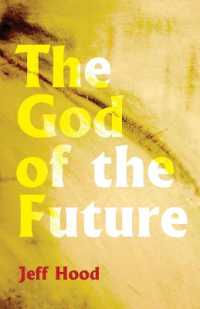- ホーム
- > 洋書
- > 英文書
- > Religion / Ethics
Full Description
During the seventeenth and eighteenth centuries, modern thinkers came to believe that our notion of truth should be objective, certain, and precise. Mathematics became the model for how truth should be conceptualized, and we sought to eliminate ideas that were vague, ambiguous, or contradictory. The teachings of Jesus, however, are often vague, ambiguous, and even contradictory. Fortunately, a twenty-first century understanding of the human condition has debunked the modern notion of truth, showing it to be truncated at best.
We are now free to rethink our notion of truth in a way that is compatible with the things that Jesus said and did, and equally compatible with what we now know to be our access to truth given the limits of our human condition. This volume sets out to explore these issues in depth and examine what it might mean for us to speak of the truth of the Gospel in a twenty-first century context.
Contents
Preface
Acknowledgments
1 Introduction
2 Objectivity
3 A Phenomenal Understanding
4 The Phenomenal Nature of Spiritual Experience
5 The Quest for Certainty
6 A Mechanical Universe
7 The Nature of the Gospel Journey
8 Modern Reason
9 The Other Logic
10 Reasoning about God
11 The Gospel after Modernity
12 Understanding Our God Experiences
Bibliography
Index







